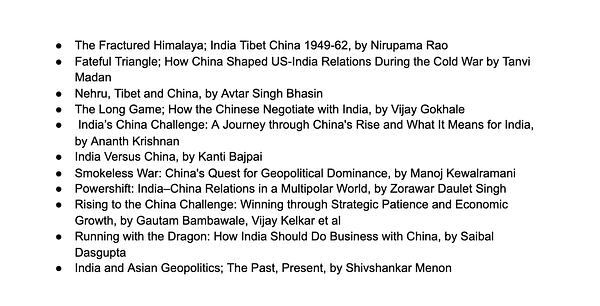Given that most of the news at the start of 2022 is grim, I thought it best to begin this first newsletter of the new year with a sentence I bet you did not expect to be reading: Did you know that babies can do statistics?
From Alison Gopnik’s remarkable The Philosophical Baby, which provides fascinating details on the recent scientific research seeking to understand how babies see the world:
“In a particularly dramatic recent study, Fei Xu at the University of British Columbia showed that even nine-month-olds understand some important statistical ideas. She showed babies a transparent box full of mixed-up red and white Ping-Pong balls. Sometimes the balls were mostly white with a few red ones mixed in, sometimes they werem ostly red with a few white ones. Then she covered the sides of the box to hide the balls. The experimenter took five balls out of the now opaque box in succession, either four red and one white or vice versa.
If you think about it, it should be surprising, though of course possible, that you just happen to pull mostly red balls out of a mostly white box. It could happen, but it’s not very likely, and certainly much less likely than pulling out mostly white balls.
Very young babies seemed to reason about probabilities in the same way. They looked longer at the experimenter when she pulled out mostly red balls from a mostly white box than when she pulled out mostly white balls from a mostly white box, or mostly red balls from a mostly red box. Like Reverend Bayes, these nine-month-olds could consider the probabilities of possibilities.”
Our daughter, Aruvi Venkat-Vidal came on December 1, 2021, and while she was busy doing statistics, I had to put aside any plans I may have had to send small updates or link posts over the course of that month. It’s likely I won’t be back to writing or interviewing regularly until March, when hopefully full-time dad duties settle into something of a routine.
Until then though, I hope to read some of the books and papers that I should have checked off the list a long time ago as well as new ones that I ought to be grabbing right away.
To that end, I’m dispatching this new year’s note with a small request:
Please send me suggestions on what I should be reading and which authors, scholars or experts you think ought to be interviewed for India Inside Out. You can either reply to this email or write in to rohan.venkat@gmail.com.
And if you do write in, and we haven’t corresponded before, please do introduce yourself! As I said, before, I would like this newsletter to be much more interactive and would love to know who you are and what you hope to see here.
I’m expecting this newsletter to cover the same subjects that we looked at on The Political Fix previously:
Indian politics, with a particular focus on research and writing in this field that goes beyond recounting what politicans were saying or doing.
Gilles Verniers on the pressing need to study Indian politics between elections.
Neelanjan Sircar on Narendra Modi’s 'politics of vishwas'.
Sumitra Badrinathan on tackling fake news and the effects of BJP’s ‘supply advantage’
Louise Tillin on a 'defining moment' for the future of Indian federalism.
Indian foreign policy, both in terms of what is happening at the moment, as well as work that looks back at how India’s strategic policymaking evolved.
Pranay Kotasthane makes the case for the Quad to take on China via semiconductors.
Darshana Baruah on the Indian Ocean and the need for Delhi to have a ‘maritime mentality’.
‘Chinese are simply talking to keep India distracted’: Jabin Jacob on New Delhi’s Beijing challenge.
Indian history, with an emphasis on more recent efforts to decolonise the archive and nuance our understanding of the past.
Radhika Singha on the need to expand our understanding of India’s role in World War I.
Manan Ahmed Asif on how the colonial state altered our past and erased Hindustan.
Christophe Jaffrelot on what we misunderstand about the Emergency – and how it is relevant in Modi's India.
India’s economy, especially efforts to decode current trends and look under the hood:
Ashwini Deshpande on the need for Indian economists to grapple with discrimination.
Amit Basole on the pandemic’s devastating impact and the need for a fiscal response now.
How can India get out of the low-growth trap? Sabyasachi Kar has an unconventional proposal.
Those categories don’t cover everything that the newsletter will touch on. Last year, I ended up dipping a toe into the vexing matter of India’s vaccine policy as well as speaking to experts on other topics like India’s police state and the political exclusion of migrants.
If there is a scholar or author working on a subject relevant to Indian politics or policy that doesn’t quite fit into those categories, please feel free to send in your suggestions regardless.
Since this is not meant to be just a one-way street, I’ll append here a small collection of recent notable books by Indian authors on the India-China relationship – examining both historical and contemporary issues – that I put together late last year.


The replies to the tweet have a number of other suggestions as well.
I haven’t yet been able to read all, but I expect that a reading list such as this might be useful going into this year, what with lots of headlines emerging from the Line of Actual Control between India and China in just the last week alone.
Linking Out













Can’t make this up
In the NITI Aayog’s Annual Health Index for 2021, Kerala topped the charts, and Uttar Pradesh was rank bottom, of the big states.

Still, the government think tank – and subsequent media coverage – found a way to make a case for putting Uttar Pradesh at the very top of rankings, regardless.






